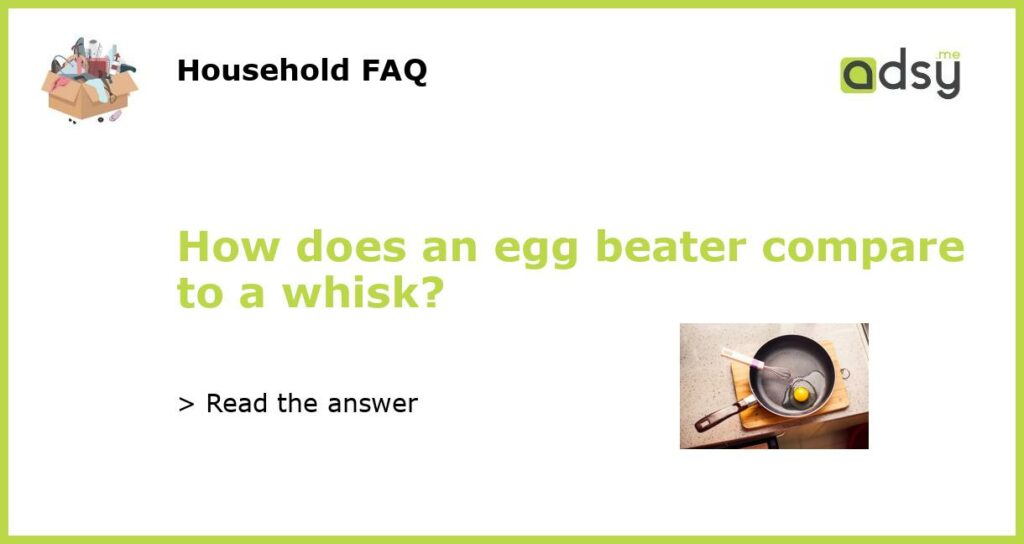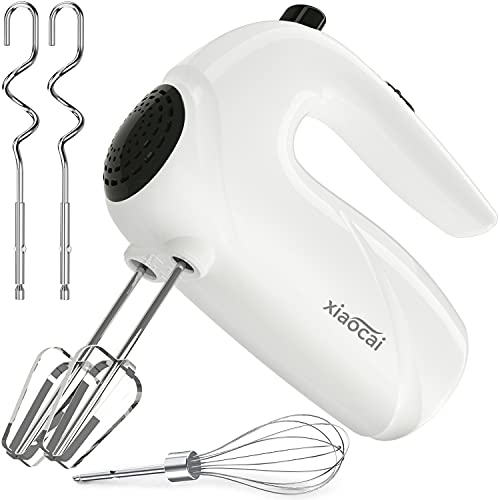Egg Beater and Whisk: What’s The Difference?
Egg beater and whisk commonly referred to as culinary utensils that stir and mix food ingredients. However, there are distinct differences between the two utensils.
For those unfamiliar with baking and cooking, the terms egg beater and whisk may appear interchangeable. But these tools have differences in features that make them handy for specific purposes.
The Egg Beater
An egg beater is an electric device with a motorized set of rotating beaters found in a handheld device. Generally, the device has two metal beaters that can be connected and disconnected from the primary appliance. The beaters are placed into whipping cream, egg whites, and other ingredients to facilitate the blending process and create sauces, mixtures and batters.
One of the primary advantages of an egg beater is that it can quickly mix and blend ingredients, saving time and effort, especially when larger quantities of ingredients need blending.
The Whisk
A whisk consists of a series of long and thin wires, preferably made of stainless steel, attached to a long handle. A whisk is designed to blend liquids together and mix small amounts of ingredients, such as oil and vinegar for salad dressings or mixing eggs for scrambling.
The whisk is hand-powered, which means it requires manual effort to mix ingredients. The springy wires create a ballooning effect, trapping air and blending the ingredients while preventing clumping and creating a froth-like mixture.
Egg Beater vs. Whisk
The primary difference between the two utensils is in how they operate. An egg beater makes it quick and easy to combine large batches of ingredients, such as mixing up cake batter or whipping cream. A whisk, on the other hand, can blend small batches of ingredients for cooking or baking, like whisking eggs for a scramble or blending salad dressings.
The main disadvantage of an egg beater is the price point as it is relatively more expensive than a whisk. Small, handheld whisks are affordable, lightweight, easy to clean, and can be stored in kitchen drawers. An egg beater, however, requires an electrical connection.
Ultimately, whether you opt for an egg beater or whisk depends on the type of culinary project you are working on. In general, using a whisk to blend small amounts of ingredients or creating emulsified dish like vinaigrette is a great option. For heavier-duty or larger baking or cooking tasks, an egg beater will simplify and quicken the blending process.






